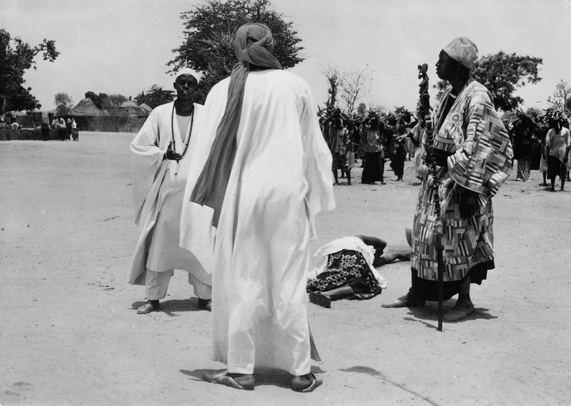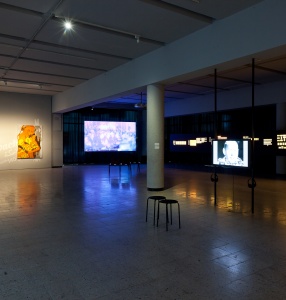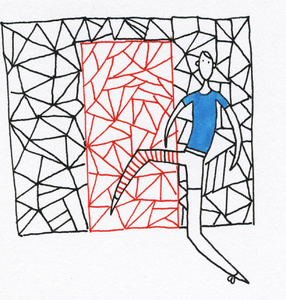"Ceddo"
Screening of Ousmane Sembène's film
In many ways, “Ceddo” is the most stylistically bold and politically provoking film by Ousmane Sembène – a Senegalese director, described by many as “the father of African cinema”, touching on the matters of colonialism, slave trade and fight for liberation.
Ceddos (otherwise Cedos, Tiédos, Thiédos, Polish pronunciation: Tjedo) is the name of a warrior caste, pioneers in the fight in the kingdom of Senegal against the colonialists and conversion to alien religions. The plot unveils in the 17th century, right when Islam and Christianity enter West Africa. In a village, an imam converts the royal family to Islam, then forces the people to adopt the new faith. The Ceddos refuse to convert, preferring to maintain their cultural independence.
The film is the director's homage to Africa's historical nobility, and in the universal perspective, a call for the right to diversity and maintaining one's own identity and rejection of cultural colonisation. “Ceddo is not a tribe, it is a state of mind,” Sembène used to say, a director who, throughout all his life, would tell the African people to depend on their own strength. This is why he named his house in Dakar “Galle Ceddo”, the house of Ceddo.
Like a Greek tragedy, “Ceddo” is disguised in a historical costume, however, its real aim is to analyse the present. It exposes the mechanisms of slavery, often reinforced by the Africans themselves, and also the role played in the continent's colonisation by the two major religions: Islam and Christianity. The role of the historical styling is therefore to follow the Brechtian pattern of creating critical distance, bringing the audience closer to understanding Africa's situation today.
“Ceddo” was prohibited in Senegal until 1984. The official reason was an alleged spelling mistake: an extra “d” in the title, while in reality, its distribution was hampered for political reasons.
Ousmane Sembène - Senegalese writer and director. Son of a fisherman, a Senegalese rifleman fighting in the WW II battlefield, docker in Marseille, largely a self-taught artist. He made his début in 1960 with the novel “Les Bouts de Bois de Dieu”, about the strike of railwaymen of the Dakar—Niger train line in the 1940s.
He spent a year studying in Moscow, in Gorky Film Studio, starting his career of a film-maker in the 1960s, when Africa was shedding colonial rule. The first full-length narrative film made by a black director in the story of the cinema is his 1966's New Wave “Noire de...” (“Black Girl”, literally “The black girl of...”), and 1968's “The Money Order” is the first ever feature film in the local dialect (wolof, spoken by the majority of the Senegalese).
He directed ten feature films. He said he turned to film as books would not reach the African audience, most of whom couldn't read by the time. Lover of Brecht and politically and socially responsible cinema. He told stories of the African culture, which carries the burden of centuries-old conquests: both religious and colonial, painted a negative portrait of post-colonial black bourgeoisie who took over the power, paid respects to Senegalese riflemen, defended women's rights. This is why many of his films were banned by censorship, also in France (“Le Camp de Thiaroye”, 1987). His last film, the visually enchanting “Moolade” (2004), winner of the Cannes “Un Certain Regard” award, is a voice against ritual circumcision of women.
Ousmane Sembène died in 2007 in Dakar. He did not manage to fulfil his lifelong dream: a film portrait of Samori Touré, a great warrior, hero of the anti-colonial uprisings in the 19th-century West Africa.
Magda Podsiadły - Former journalist in the culture section of Gazeta Wyborcza in Wrocław (1990 to 2012, she co-created the section and stood at the head of it for a decade); she spent her childhood in Guinea in Africa; graduate in Polish Studies at the University of Wrocław‚ PHD student at the Institute of Archaeology and Ethnology, Polish Academy of Sciences. She is passionate about theatre and cinema in the francophone Africa (she publishes works on cinema and theatre in various titles, including “Didaskalia”, “Kino”, “Format”, “Notatnik teatralny”, “Dwutygodnik.com”). In addition to her journalist work, she is dedicated to documentary photography.



